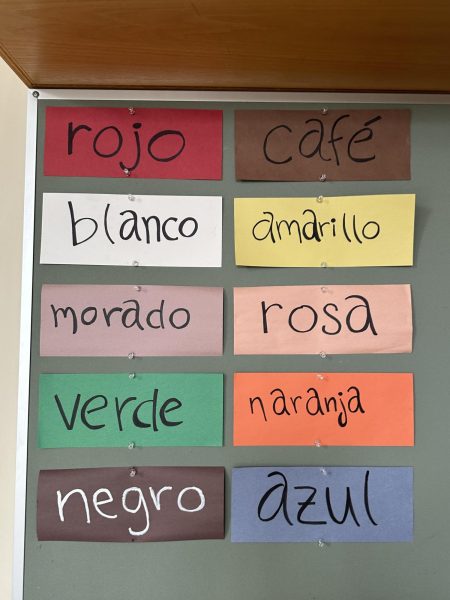Happy Yom Kippur? You Probably Shouldn’t Say That
While most students breathe a collective sigh of relief with a district-wide holiday on October 9th with Yom Kippur, the Jewish population, however, will be reflecting on the past year and spending time with family and friends.
Some Jewish students like Ben Girard will be embarking on a challenging day – fasting from night through the next day.
“I will be fasting from sundown tonight to sundown tomorrow and I will be attending services at my local synagogue,” Girard said.

Typically, fasting on Yom Kippur means a lack of food and water, which challenges the predominant Western definition of what a fast is (which is simply abstaining from food). However, not everyone necessarily observes the fast in that way, like senior Lexi Chason. She abstains from food but drinks water because she believes it’s unhealthy to go without water for 26 hours.
One thing that the Jews who observe Yom Kippur can look forward to is the food. There are feasts before and after the fast that involve various beloved Jewish delicacies.
“It’s all about the food,” Chason said. “Tonight we are having a big family dinner with lots of food and challah [a Jewish bread] and tomorrow we are going to starve ourselves for the day. I will be attending services with my family and then finish it up at night with ‘break fast.’”
Food enjoyed on this occasion include classic breakfast items like bagels and cream cheese and Jewish specialties like kugel (noodle pudding) and the aforementioned challah.
From this, one may assume Yom Kippur is a joyous holiday. That isn’t necessarily the case. Senior Matt Epstein explains the relevance behind the holiday.

“It’s the day of atonement—we get relieved of our sins,” Epstein said.
According to Girard, the holiday is also an opportunity to begin the new year right. Yom Kippur marks 10 days after the Jewish New Year: Rosh Hashanah. So is it inappropriate to wish someone a ‘Happy Yom Kippur?’
“It doesn’t offend me because I know the population isn’t very Jewish at all,” Girard said. But, he states, “‘How was your holiday?’ is better.”
However, the holiday isn’t entirely solemn. Yom Kippur offers an opportunity for Jewish people to enjoy great food but also reconnect with family and friends. The break fast in the evening is especially enjoyable.
“That’s more upbeat. The holiday has ended and you’re with your family,” Girard said.
Often, Jewish people will congregate at family members’ houses for the holiday as well.
“Every year I go to my aunt’s house to celebrate with my family,” Chason said.
Although many students and faculty will be enjoying a break from school, a significant portion of the population will be observing a contemplative and important religious holiday with their friends and family.













